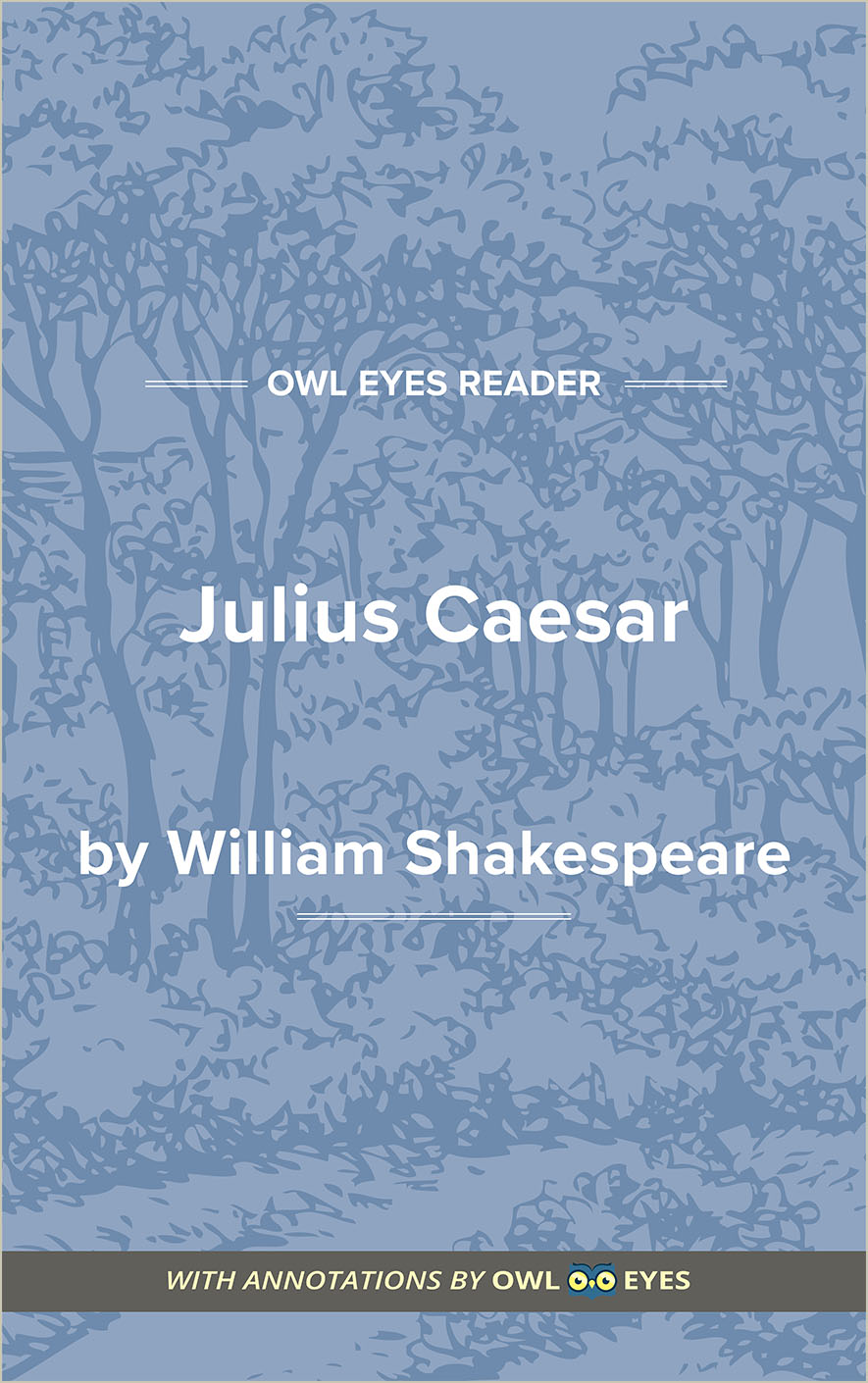Analysis Pages
Themes in Julius Caesar
Fate and Omen: One of the central questions Julius Caesar poses is whether fate is predetermined. Throughout the play, omens and prophecies are discovered and told. Fountains fill with blood; lions tread through the Roman streets. Yet these omens are interpreted in different ways by different characters, creating a universe in which free will and destiny are offered as equally plausible philosophies. Caesar entertains the omens of his death, then ignores the omens, then dies. Cassius staunchly subscribes to his own sense of will and agency, but his plans unravel and he falls prey to the civil unrest he brought about. The question of whether humans truly possess free will is never answered; rather, we see each character struggling with the mysterious threads of fate.
The Power of Rhetoric: Throughout Julius Caesar, the political events that unfold are picked apart, analyzed, and interpreted by the play’s characters in various ways. Caesar’s rise to power is either just or unjust, depending on the character who describes it. Caesar’s assassination is good or bad, depending on whether Brutus or Mark Antony is holding court. Those interpretations take on their own power within the play. The crowd—the roiling Roman populace—are ever-present, ready to be swayed this way or that. In a sense, Julius Caesar is theater within theater. Just as the Roman crowd reacts to the oratory of each scene, so does the audience of the play.
Loyalty: In Julius Caesar, loyalties are often in flux. Brutus, the play’s moral center, constantly questions his loyalties to Caesar and to Rome. Upon Caesar’s death, Mark Antony’s loyalties subtly shift before the eyes of the Roman public. The relationship between Cassius and Brutus is defined by a strong mutual loyalty, disrupted by frequent disputes.
Themes Examples in Julius Caesar:
Act I - Scene I
🔒"Wherefore rejoice? What conquest brings he home? What tributaries follow him to Rome,(35) To grace in captive bonds his chariot-wheels?..." See in text (Act I - Scene I)
Act I - Scene II
🔒"Ye gods! It doth amaze me A man of such a feeble temper should(135) So get the start of the majestic world And bear the palm alone...." See in text (Act I - Scene II)
Act I - Scene III
🔒"And that which would appear offense in us, His countenance, like richest alchemy, Will change to virtue and to worthiness...." See in text (Act I - Scene III)
"And why should Caesar be a tyrant then?(110) Poor man! I know he would not be a wolf But that he sees the Romans are but sheep...." See in text (Act I - Scene III)
Act II - Scene III
🔒"If not, the Fates with traitors do contrive...." See in text (Act II - Scene III)
Act III - Scene I
🔒"Fates, we will know your pleasures. That we shall die, we know; 'tis but the time(110) And drawing days out that men stand upon...." See in text (Act III - Scene I)
Act III - Scene II
🔒"There is tears for his love, joy for his fortune, honor for his valor, and death for his ambition. Who is here so base that would be a bondman?..." See in text (Act III - Scene II)
Act V - Scene I
🔒"O, that a man might know The end of this day's business ere it come! But it sufficeth that the day will end, And then the end is known...." See in text (Act V - Scene I)
Act V - Scene V
🔒"Within my tent his bones tonight shall lie, Most like a soldier, order'd honorably...." See in text (Act V - Scene V)

